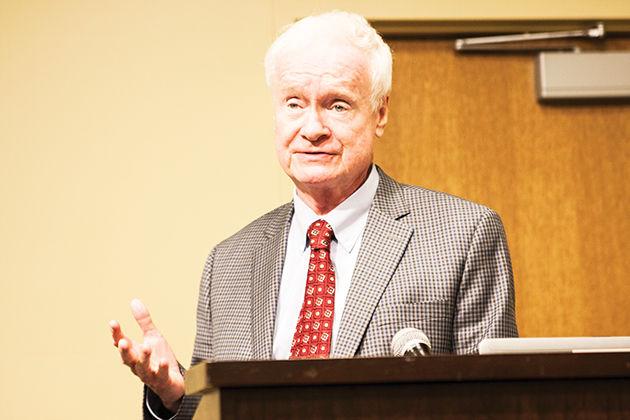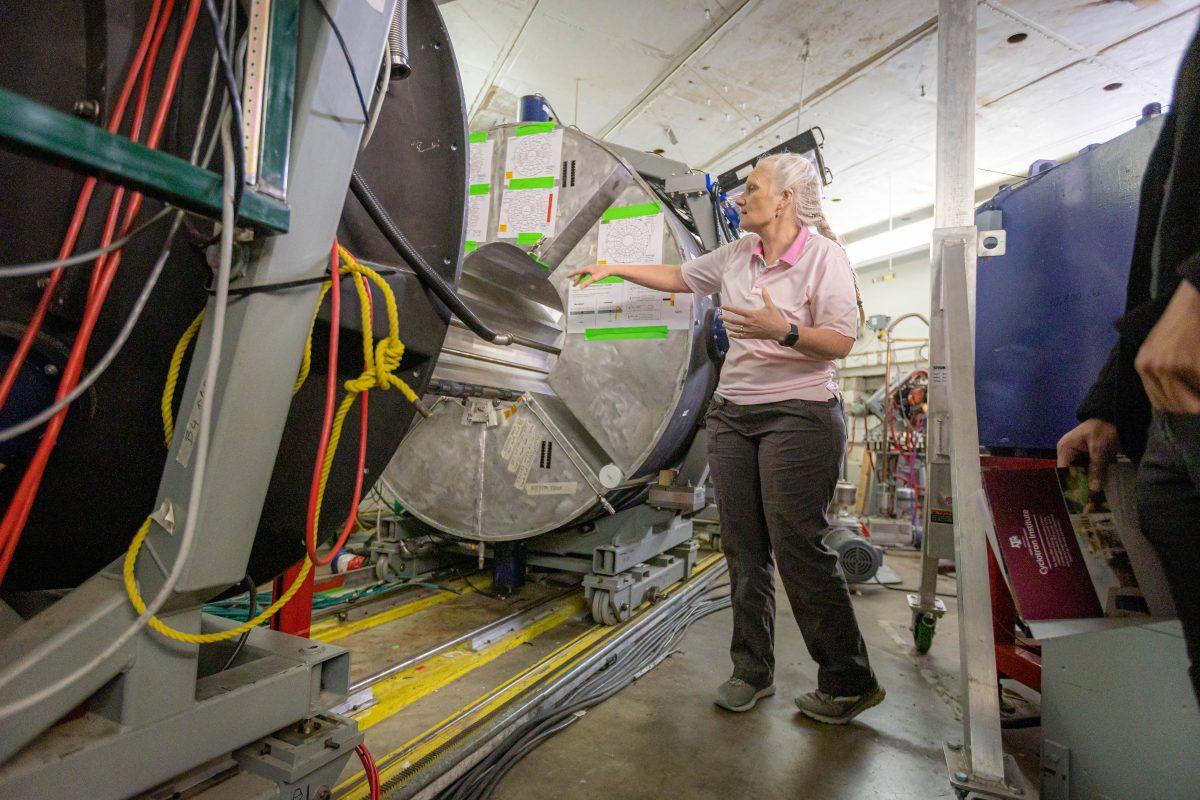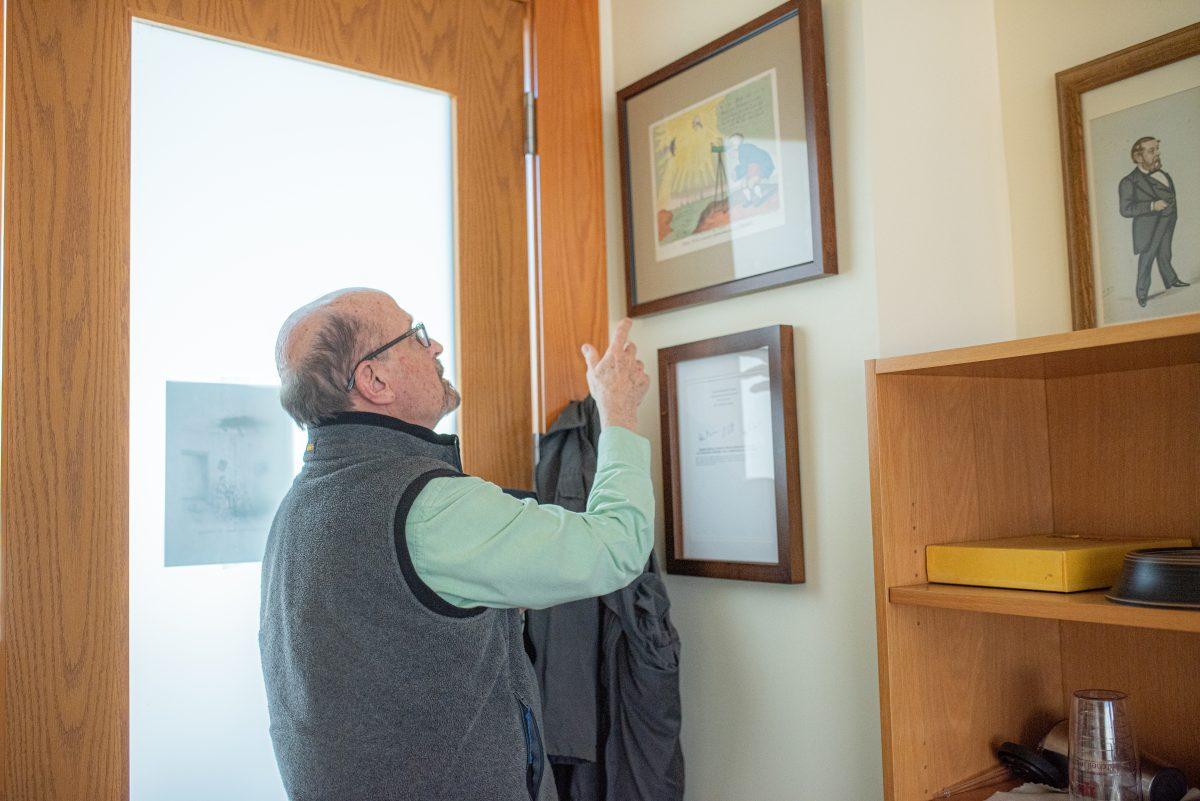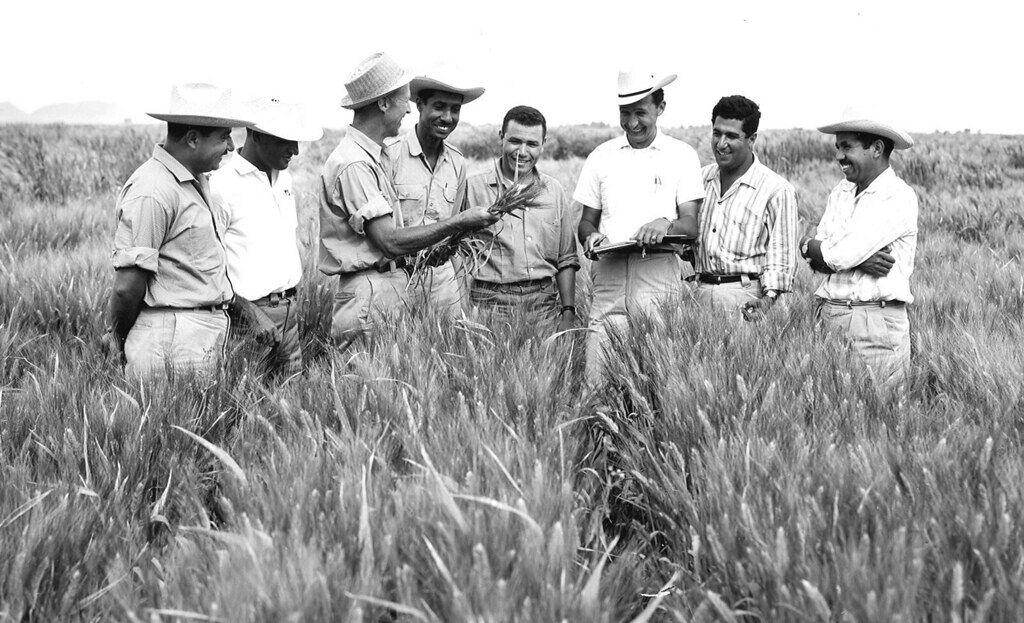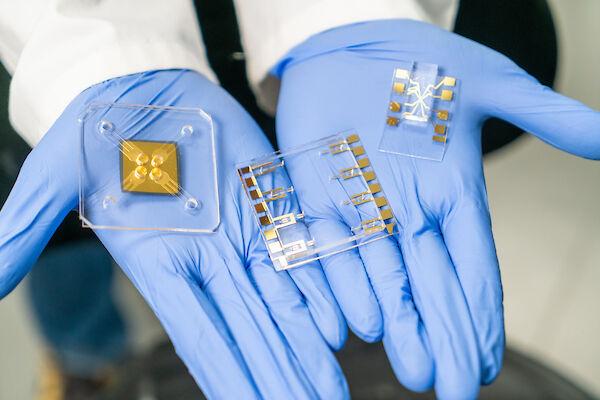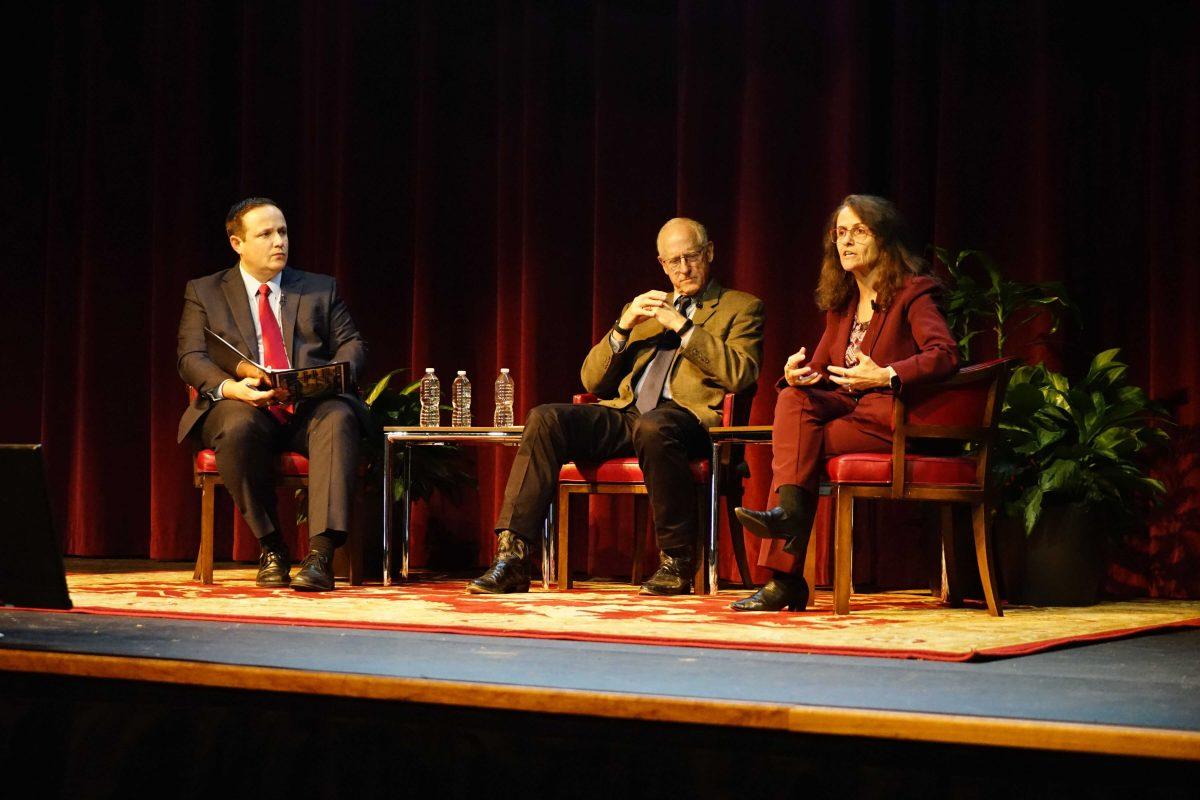Industry professionals provided insight into the lucrative market that is outer space Wednesday as part of a Wiley Lecture Series panel.
David Hyland, aerospace professor and panelist, said the Space Act of 2015 has opened the doors for companies to explore space and to profit from it.
“It allows US citizens to engage in the commercial exploration and exploitation of space resources including water, and minerals, and metals,” Hyland said. “So this means you can go to an asteroid and you can extract useful metals and own those things and sell them.”
Matthew Leonard, CEO of TSTAR and panelist, said the United States’ move toward buying seats on Russian spacecraft to the International Space Station demonstrated to companies that a profit can be made in space exploration.
“It proved to the country and to the commercial side that there is a market that would pay a substantial amount of money to get to space,” Leonard said. “It gave them the idea that they could go, build these rockets, and get somewhere around the same price for sending astronauts to space and returning them from Space.”
Leonard said now companies are beginning to look at other ways they can profit.
“They are returning rockets to Earth, for reuse, they are reexamining safety protocols we’ve had in place for decades,” Leonard said. “What absolutely has to be there and what doesn’t? They are optimizing their production lines and they are optimizing their launches.”
Hyland said the loosening of space regulation has opened up other business opportunities to companies.
“Before, international law regarded space as the common domain of all mankind and any sort of space exploration activity should be directed to the benefit of all mankind,” Hyland said. “Well, no one is going to take the trouble to go to an asteroid with all the research and development that entails, extract precious minerals, return them to Earth and turn over the proceeds to all mankind. Somebody has to be first.”
Leonard said the biggest challenge yet in space exploration is showing companies that things are possible and proving they can make a profit from it.
“We’re asking those companies to figure out why they want to go into that commercial environment, what the payback is for them,” Leonard said. “The ability to go mine an asteroid or to go mine something from the moon and retain the revenue is a big thing we didn’t have before.”
Pakorn Chaiwat, safety engineering masters student, said he enjoyed the panel.
“I wanted to know more about what ongoing developments have been going on in space exploration,” Chaiwat said. “Overall, I think it has been good to know the progress that has been made in this area.”
Hyland said exploring space is not only financially beneficial — it might be necessary for the future of humanity.
“I think it’s a question of survival,” Hyland said. “I mean we could be wiped out as a species by an asteroid or a comet impact, gamma ray burst, or something else if Earth is our only hope. I think what we more have to worry about is a kind of destructive stagnation if we remain in one place, the loss of nerve, a narrowing perspective. The urge to explore new worlds is a fundamental human trait and we can’t ignore that except at our own peril.”
‘New space age’ discussed at lecture series
February 11, 2016
Photo by Photo by: Madeline Sambrano
David Hyland, A&M aerospace engineering professor, was one of the panelists who discussed the “new space age” at a panel Wednesday.
Donate to The Battalion
Your donation will support the student journalists of Texas A&M University - College Station. Your contribution will allow us to purchase equipment and cover our annual website hosting costs.

















